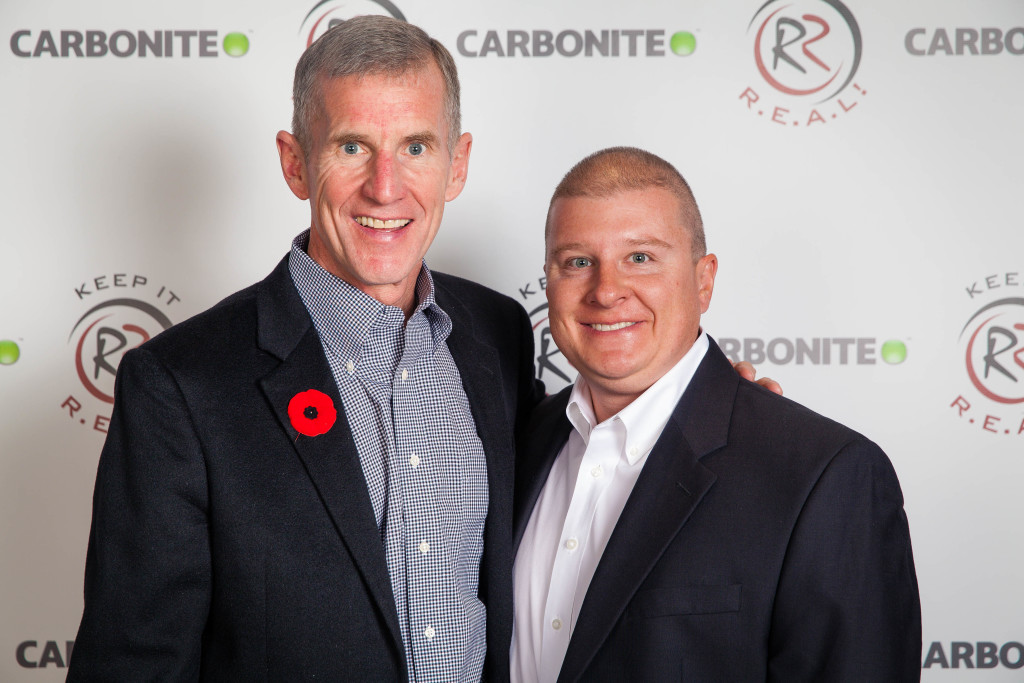 Recently, I had the opportunity to meet General Stanley A. McChrystal and hear him speak about applying his military experiences to the business world. Best known for his command of Joint Special Operations Command in the Mid-2000s, the retired U.S. Army General currently works with civilian companies advising them on leadership, management, and adaptability in the business world, and these are my top 3 takeaways from him:
Recently, I had the opportunity to meet General Stanley A. McChrystal and hear him speak about applying his military experiences to the business world. Best known for his command of Joint Special Operations Command in the Mid-2000s, the retired U.S. Army General currently works with civilian companies advising them on leadership, management, and adaptability in the business world, and these are my top 3 takeaways from him:
1.) To Become Efficient, You Must Be Adaptable
Most leaders organize their business in the most efficient way possible; they prescribe how the organization is going to work, the hierarchy and workflow process, but now it is becoming increasingly important to be more adaptable. General McChrystal emphasizes this by saying that most outcomes are impossible to predict because there are too many interdependencies. There is often an equally complicated resolution to a complicated problem and sometimes the relationship between the cause and effect of a situation isn’t obvious. That is why it is key to stay efficient but also change the way you interact, creating a hybrid of adaptability and efficiency. By changing the way you interact with your employees, and in turn the way they interact with you, you can help to paint a bigger picture for any issue and through communication, more easily resolve that issue. General McChrystal calls this “shared consciousness” or a “communal contextual understanding.” By staying connected and communicating more effectively as an organization, adaptability comes naturally because as General McChrystal put it, “When people make a decision closer to the action, they own it.”
2.) A Leader Has to Look Like A Leader
The way you orchestrate your employees and your organizational management is a reflection of yourself and the way you live. When you are in charge of a company, organization, or situation, people look to you for direction and inspiration. General McChrystal used the analogy of being a gardener to describe what is it to be a skilled leader. He describes the gardener as an enabler, allowing people to do what they know how to do naturally. But gardeners not only plant and harvest, they must also tend to the many needs of their plants. Regular watering, fertilizations, weed removal are all apart the general care required for optimal growth. This regular care leaves the crop stronger so that they can do what they already know how to do at peak performance. It takes discipline, constant learning, and effective communication to create this atmosphere for high productivity and it is these characteristics and qualities that should be reflected in every aspect of your life, so that when people look to you, they see a leader.
3.) Find Your Focus
The idea that you can somehow magically be more productive and eventually get caught up on your to-do list is nothing more than an idea, you must acknowledge that you can’t do it all. General McChrystal states that a leader must be able to prioritize not what you’re going to do, but what you’re going to blow off. A leader must accept that some things won’t get done and expect to take the heat for those decisions, but such decisions are important to truly seeing the big picture. View everything that matters only as it pertains to the big picture. In order to do so, you’re going to have to stop being safe and step outside the line. If it will make you uncomfortable, then good, no one got anywhere in life by being comfortable with their situation. You must get rid of your fears and focus on that big picture.
